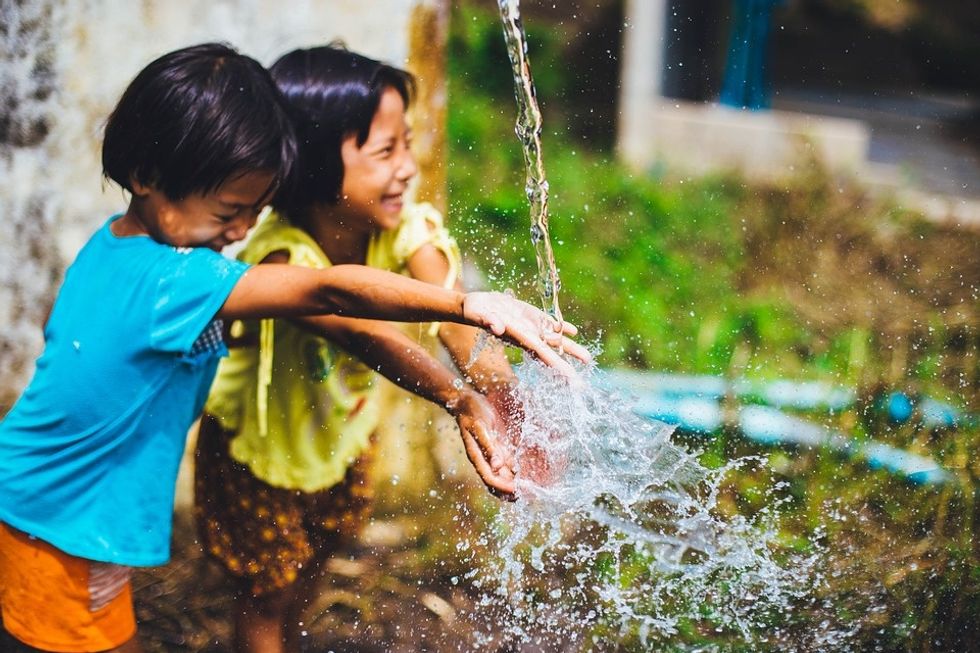Earth is suffering, and we are the cause.
After 4,000 years of human cultivation, many of her natural resources are dried up, her habitats destroyed, and her children slaughtered. In the last 100 years, more damage has been done to reap finite resources than in the last 3,900. This is called the tragedy of the commons.
A tragedy of the commons happens when too many people take advantage of a limited resource. What's worse is each year the population grows exponentially, the tragedy compounds. For us to accommodate, the resources available must also increase. Although we may be able to increase production now, this pushes the limits of Earth’s capacity to keep creating.
When something is farmed to extinction or degradation, it does not grow back. "The tragedy of the commons is an economic problem in which every individual tries to reap the greatest benefit from a given resource. As the demand for the resource overwhelms the supply, every individual who consumes an additional unit directly harms others who can no longer enjoy the benefits. Generally, the resource of interest is easily available to all individuals; the tragedy of the commons occurs when individuals neglect the well-being of society in the pursuit of personal gain."
When you think about it...systems like capitalism that favor profit over sustainability—it wasn’t designed to last. The downfall of capitalism is prophesied by the tragedy of the commons.
The problem is exponential growth. In most populations in the animal kingdom, population sizes act like a parabola: rising and rising until they reach a peak. At this peak, there are not enough resources to sustain them. The numbers will continue to drop as individuals die from overcrowding, starvation, or predation. The only reason humanity has not dipped is that up until now, we've been able to increase our gross domestic product to accommodate. This has come at a cost that we do not have to pay--our children will have to.
"Exponential growth has also applied to the the human population. The population began growing very slowly, but over generations our growth rate has increased more and more rapidly, similar to a snowball affect. It took the human population thousands of years to reach 1 billion in 1804. However, it took only 123 years for us to double to 2 billion by 1927. The population hit 4 billion in 1974 (only 47 years), and if we continue at our current rate, the human population will reach 8 billion around the year 2028. Doubling from our present count of 7 billion to 14 billion will have a much greater impact than our last couple doublings combined"
There is good news. The rate of babies being born has dropped in first world countries such as Japan and the US. The key to quelling population is access to education, and lower poverty rates. "The CDC offered no explanation for why the American fertility rate is dropping so precipitously." Experts say the decline isn't due to a single cause, but rather a combination of several factors, including changing economics, delays in childbirth by women pursuing jobs and education, the greater availability of contraception, and a decline in teen pregnancies."
"The birthrate fell for nearly every group of women of reproductive age in the U.S. in 2017, reflecting a sharp drop that saw the fewest newborns since 1987, according to a new report by the Centers for Disease Control and Prevention. There were 3,853,472 births in the U.S. in 2017 — "down 2 percent from 2016 and the lowest number in 30 years," the CDC said. The general fertility rate sank to a record low of 60.2 births per 1,000 women between the ages of 15 and 44 — a 3 percent drop from 2016,"
Unsustainably rising birth rates can lead to drainage of fossil fuels, burning them into the environment, global warming, large-scale urbanization, rising social pressures, war over land, and war over resources or clean water. Even eugenics systems rise in times of pressing population/resource crisis, urban sprawl, habitat loss, and the extinction of flora and fauna. (Fauna means animals, and that doesn't exclude humans!)
It's OK that you don't want to have kids! It's actually ideal given current pressures. There are already so many children in this mess of a world that need help. Adoption provides us an opportunity to be parents, without adding to the population crisis.
It's also OK if you want to have children as long as you, and your ecosystem can care for them. One person having ten children will not have a great impact on overall ecological sustainability, but 10,000 women having 10 children each who have 10 children themselves, will.
When considering your future, consider the future of the Earth as well. And use protection!























